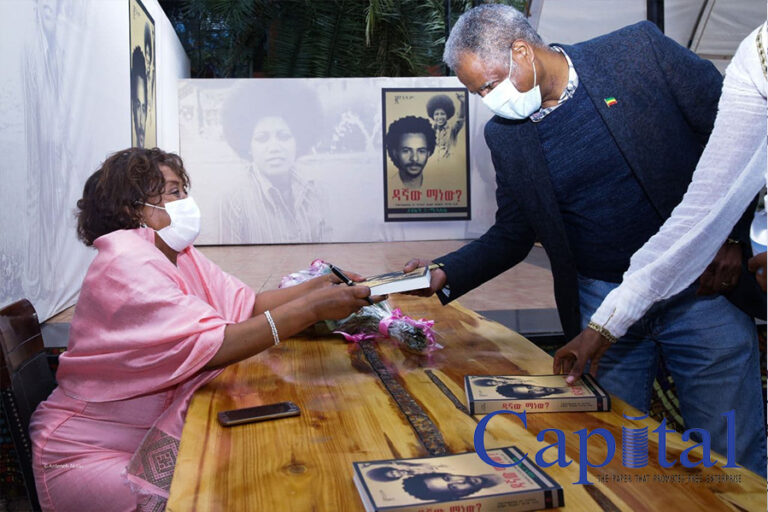The second filling of the Grand Ethiopian Renaissance Dam (GERD) would be a historic moment to irreversibly end the age-long unjust utilization of the Nile waters by downstream countries, notably Egypt, a diplomacy professor said.
Speaking to local media, Civil Service University Diplomacy Professor Endale Nigussie stated that a successful filling of 18 billion cubic meter water in the GERD reservoir in the coming rainy season would change the course of the dam’s talks and enforces Egypt to lose its longstanding hegemony.
The second filling of the GERD reservoir would also shift the responsibility of protecting the project to Egypt for the sake of its own safety.
The scholar further highlighted that the second filling, in addition to enabling Ethiopia to utilize River Nile fairly and equitably, would allow the country to undertake early electric power generation trials through the two turbines that have been fitted with the mega dam.
Noting that Egypt Foreign Minister Sameh Shoukry’s recent remark about the second filling’s insignificant impact on Egypt has caused grave public anger and resentment, he said that both downstream countries have employed zero-sum game to ease internal pressures incited by Ethiopia’s dam.
GERD second filling ends Egypt’s monopoly of Nile
UN releases $65mln for humanitarian response in Ethiopia
The United Nations has released 65 million US Dollars for the humanitarian response in Ethiopia.
UN humanitarian chief Mark Lowcock said: We need to scale up the humanitarian response in Ethiopia in support of the growing need in Tigray and other places”
Access to all those in need in Tigray remains a challenge, but aid workers are working with authorities to overcome obstacles to get help to those who need it and reaching previously inaccessible areas in the South-Eastern zone, he said.
Last week an inter-agency humanitarian convoy managed to reach Samre town, where it delivered emergency food aid and nutrition supplies and organized a mobile health clinic in the Samre hospital. These recent reports show the promise of improved access and underscore the urgency of additional funding to help people who were previously unreachable.
A total of 40 million US Dollars will be dedicated to the aid operation in Tigray, where it will fund emergency shelter, clean water, health care, work to prevent and respond to cases of sexual and gender-based violence, and emergency telecommunications to support the humanitarian response.
Ethiopian troops awarded AU medals for contributing to peace and stability in Somalia
The African Union Mission in Somalia (AMISOM) has recognised Ethiopian soldiers for their contribution towards the restoration of peace and stability in Somalia.
The Ethiopian National Defence Forces (ENDF) soldiers received African Union medals and certificates after completing one year and six months of service in Somalia under AMISOM.
The troops were deployed under the AMISOM Sector 4 in Beletweyne, Hiraan region, where they operated alongside the Djibouti Armed Forces (DJAF) and the Somali National Army to degrade Al-Shabaab terrorists.
Ethiopia is one of the five AMISOM troop-contributing countries, alongside Burundi, Djibouti, Kenya and Uganda.
Col. Abdirahman Riyale Hared, the commander of the Djiboutian contingent under AMISOM, saluted the Ethiopian counterparts for the gallantry and steadfastness while implementing the AMISOM mandate to secure Somalia.
Dagnaw Manew
Dagnaw Manew written by Tadelech Hailemikael was launched on Friday May 7, in the presence of the writer’s family, friends and invited guests at Groove Garden.
Dagnaw Manew narrates firsthand account of BerhaneMeskel Redda, a man that significantly influenced the course of Ethiopian history. She writes how she grappled to accept her survival and the pain of existence after Berhane’s death. Like all the others who have perished during that period, Berhane was never afforded a day in court. She asks, “Who is the Judge?” – Who decides who gets to live and who gets to die? She finds meaning in her survival by dedicating to tell the story of the person behind the personality. In writing the book, Tadelech finds a catharsis of sorts.
The book, in many ways, stands out as a critical contribution to understanding the ideas, ideals and convictions of a generation of students that influenced the present-day Ethiopia.
First, Tadelech’s book offers raw and unique account on the life and leadership of BerhaneMeskel Redda. Much has been written about Berhane and his influence on the student movement, but Dagnaw Manew presents significantly more. An authentic version that digs deeper into the man’s life, upbringing and formative years shaping his revolutionary outlook. Raised in a feudal household by his grandfather, Kegnazmach Redda WoldeRufael, Berhane grew up witnessing the exploitation of the Ethiopian peasantry. As a young boy, he was tasked with the responsibility of receiving crops that peasants had harvested in his grandfather’s vast farmland, often spending time with his farmer friend, Aya Muhe. One day, Aya muhe tells him that his wife had just given birth to their child but he could not afford to feed her because he must deliver all the crops he produced to his grandfather. This story would deeply affect Berhane who vows to fight the injustice and destitution of his friend Aya Muhe. Tadi writes, Berhane’s childhood experience shaped his views and inspired him to coin one of the most recognizable and galvanizing motto of the student movement – “Land to the Tiller
The book is a worthy read not only because of its historical significance and keeping our collective memory alive, but also in its portrayal of human perseverance. Tadelech’s book is sad as it is uplifting. It paints a story characterized by love and loss, sacrifice and survival, tragedy and triumph. Positive in its storytelling, reflective in its mistakes and devoid of regret or resentment, it is, essentially, a book that inspires love of a country, courage and conviction.
In recounting a dark history that took away her husband, her brother and twelve and half years of her life, Tadelech remains hopeful, reminding us the beauty in our ability to love and forgive.





